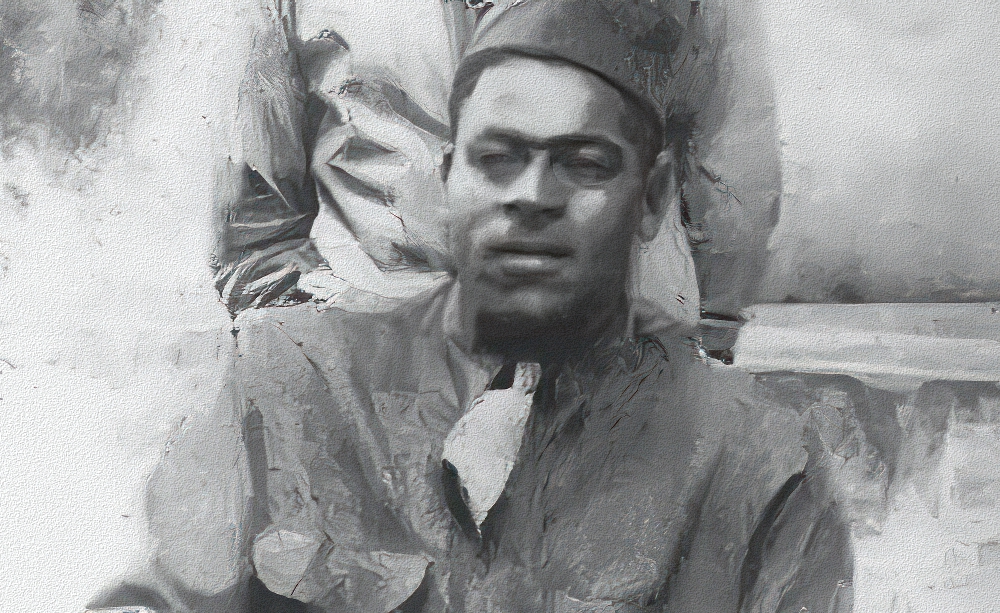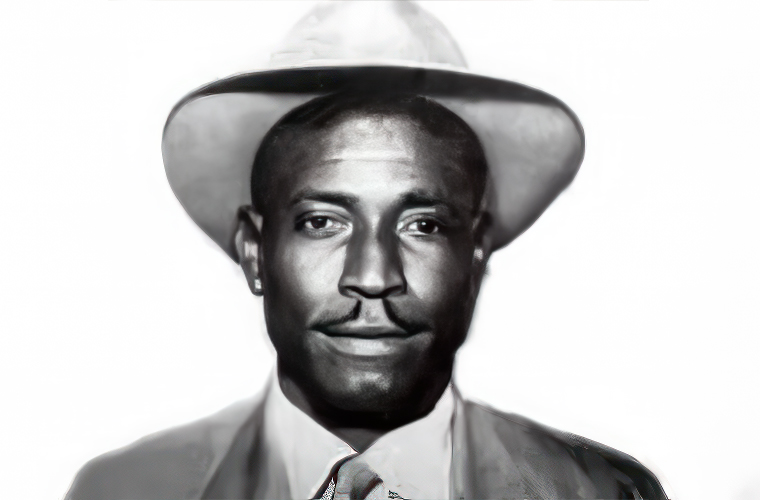Louis Till (1922-1945) was an African American soldier who served in the United States Army during World War II. He is also known as the father of Emmett Till, the 14-year-old boy whose brutal murder helped galvanize the Civil Rights Movement.
Louis Till was born in Marianna, Arkansas, and grew up in Chicago. He attended Tilden Technical High School before joining the Civilian Conservation Corps in 1940. In 1942, Till joined the Army and was stationed in Italy as part of the 370th Infantry Regiment, a predominantly African American unit. In July 1944, Louis Till was court-martialed for raping two Italian women and murdering a third. He was found guilty and executed by hanging in July 1945, just months after the end of World War II.

Before his execution, Till was imprisoned alongside American poet Ezra Pound, who had been imprisoned for collaborating with the Nazis and Italian Fascists; he is mentioned in lines 171–173 of Canto 74 of Pound’s Pisan Cantos “Till was hung yesterday for murder and rape with trimmings”
Emmett Till was born just months after his father’s execution, and his mother, Mamie Till, never spoke much about his father’s death. It was not until after Emmett’s murder in 1955 that Mamie Till revealed the full extent of Louis Till’s military history. The circumstances surrounding Louis Till’s execution have been the subject of some controversy. Some have argued that the evidence against Till was weak and that he was unfairly convicted and executed. Others have pointed to evidence that suggests Till was involved in a number of other crimes while stationed in Italy.

Regardless of the controversy surrounding Louis Till’s execution, his legacy has been largely overshadowed by the tragic fate of his son, Emmett Till. However, Louis Till’s military service and subsequent execution highlight the continued discrimination faced by African American soldiers during World War II and the systemic racism and injustice that persisted in the United States at the time.

